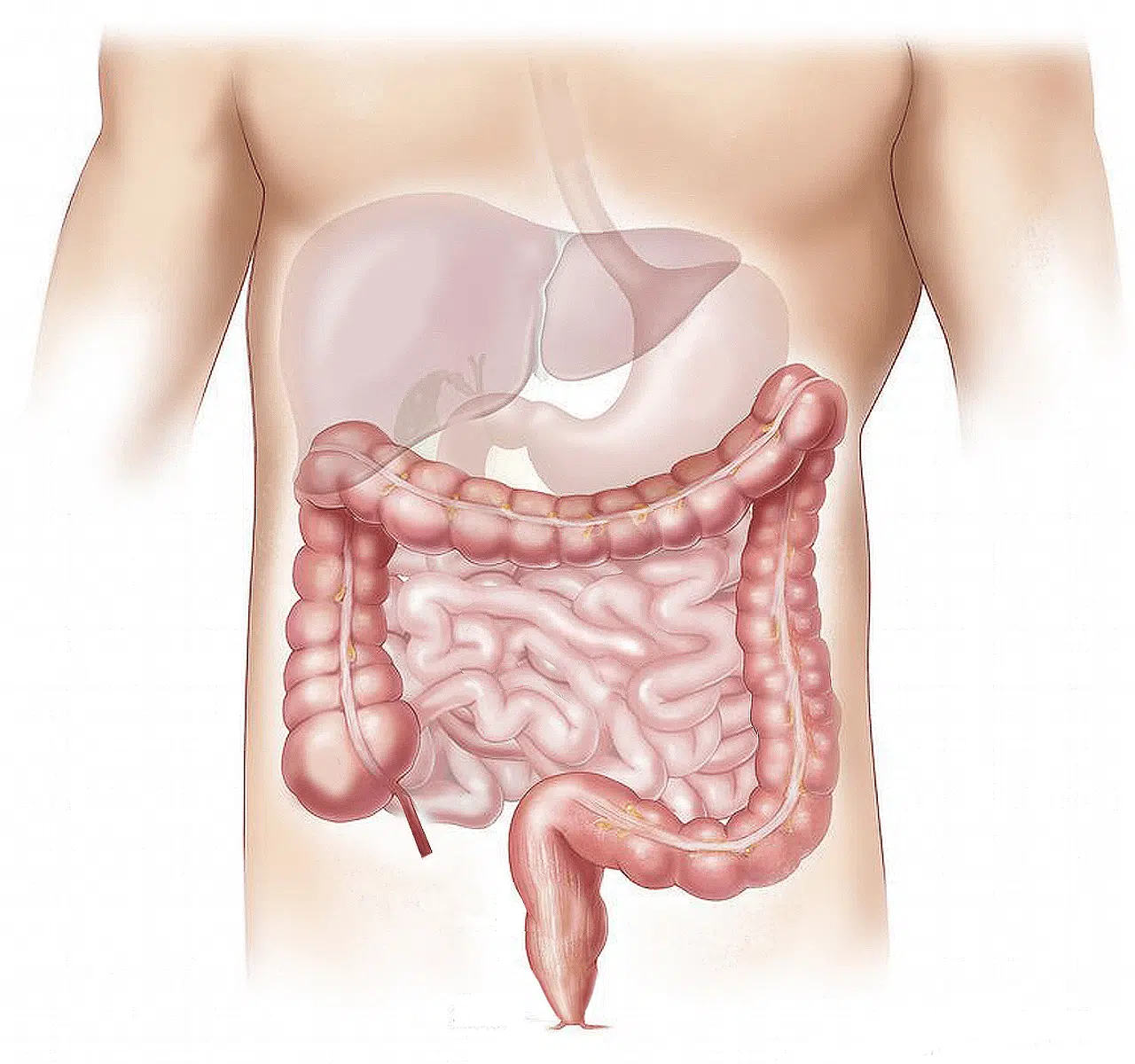
The colon is a sector of the large intestine.
The colon is the portion of the large intestine of mammals that begins where the cecum ends and ends where the rectum begins. The cecum, colon, rectum and anal canal form the large intestine , which is the penultimate portion of the digestive system.
The large intestine can be defined as a muscular tube one and a half meters long, which absorbs water and mineral nutrients from food and stores waste.
Sections of the colon
The colon can be divided into four sections. The first is known as the ascending colon , it begins at the junction with the small intestine and extends along the right side of the abdomen . The second section is the transverse colon , which runs through the abdomen from the right side to the left. At its ends, flexures called right colic flexure (join the ascending colon with the transverse colon) and left colic flexure (join the transverse colon with the descending colon) are formed.
The third section is the descending colon , which continues down the left side of the abdomen. Finally, the fourth section is the sigmoid colon , which joins the rectum and empties into the anal canal.
a functional disease
Irritable bowel disease is a functional disease (without an organic correlate) that affects 15% of the population. Its symptoms include severe abdominal pain, diarrhea, constipation, fatigue and general malaise.
Diet and emotional components are the main causes of irritable bowel syndrome, also called irritable bowel syndrome . Stress , anxiety , anguish and depression are psychological factors that can be somatized by the patient through the appearance of this disorder .

Eating a balanced diet helps minimize the risk of suffering from colon conditions.
Emotions and the colon
People who lead disordered and stressful lives often suffer from gastrointestinal complications due to accumulated tension: the most common are constipation and gastritis . In addition, there is also another type of condition such as the aforementioned irritable bowel syndrome , which is due to emotional conflicts that take up excessive space in our minds and from which we cannot get rid of or resolve.
When a person suffers the illness or death of a loved one, they usually express their anguish and discomfort through conditions in the digestive system and the aforementioned is the most common. This disorder tends to be present more in women than in men and is fundamentally characterized by causing an accelerated decrease in the quality of life of those who suffer from it.
This pathology occurs through an inflammation of the stomach that causes the patient to experience problems in achieving good digestion of food. It can also be accompanied by constipation, diarrhea and constant discomfort, causes that, in turn, will affect the individual in their social life since, feeling weak, they will stop frequenting their circles and spend more time alone and can even lead to an illness. psychic like depression , if it is not treated in time.
According to Dr. Carolina Dulcey , who has exhaustively studied the causes of this ailment , it occurs because people allow themselves to be overwhelmed by their responsibilities and activities and then begin to eat poorly (at odd hours and without taking into account what kind of food they eat). ). Over time, by not paying attention to the needs of your body and not going to a specialist, this problem can become a chronic pathology that requires specialized treatment to be resolved .
It is important to note that with a balanced diet , indicated if possible by a specialist, it is plausible to collaborate with a speedy recovery. For example, a low FODMAP diet is suggested (excluding foods rich in oligosaccharides, lactose, polyol and fructose).
The fundamental thing is, in turn, to work on the psychological origin of the problem because our body is a whole and if something does not work because of another unresolved issue, until said issue is addressed, the only thing we will do is patch it up, but sooner or later We will fall into the same situation again.

Diverticulitis and paralytic ileus are some disorders that can affect the colon.
a type of cancer
Colon cancer is cancer that arises in this area of the large intestine. It usually begins with polyps that, over time, become cancerous.
Changes in intestinal habits (with recurrent constipation and diarrhea ); alterations in the consistency of feces; abdominal discomfort; and weight loss for no clear reason are some of the possible symptoms of this disease, which has hereditary issues, advanced age and other preceding conditions (such as Crohn's disease and ulcerative colitis ) as risk factors.
The diagnosis of colon cancer can be made with a colonoscopy and a blood test . As for treatment, it varies depending on the severity of the case. Colon cancer may require a colectomy and colostomy .
